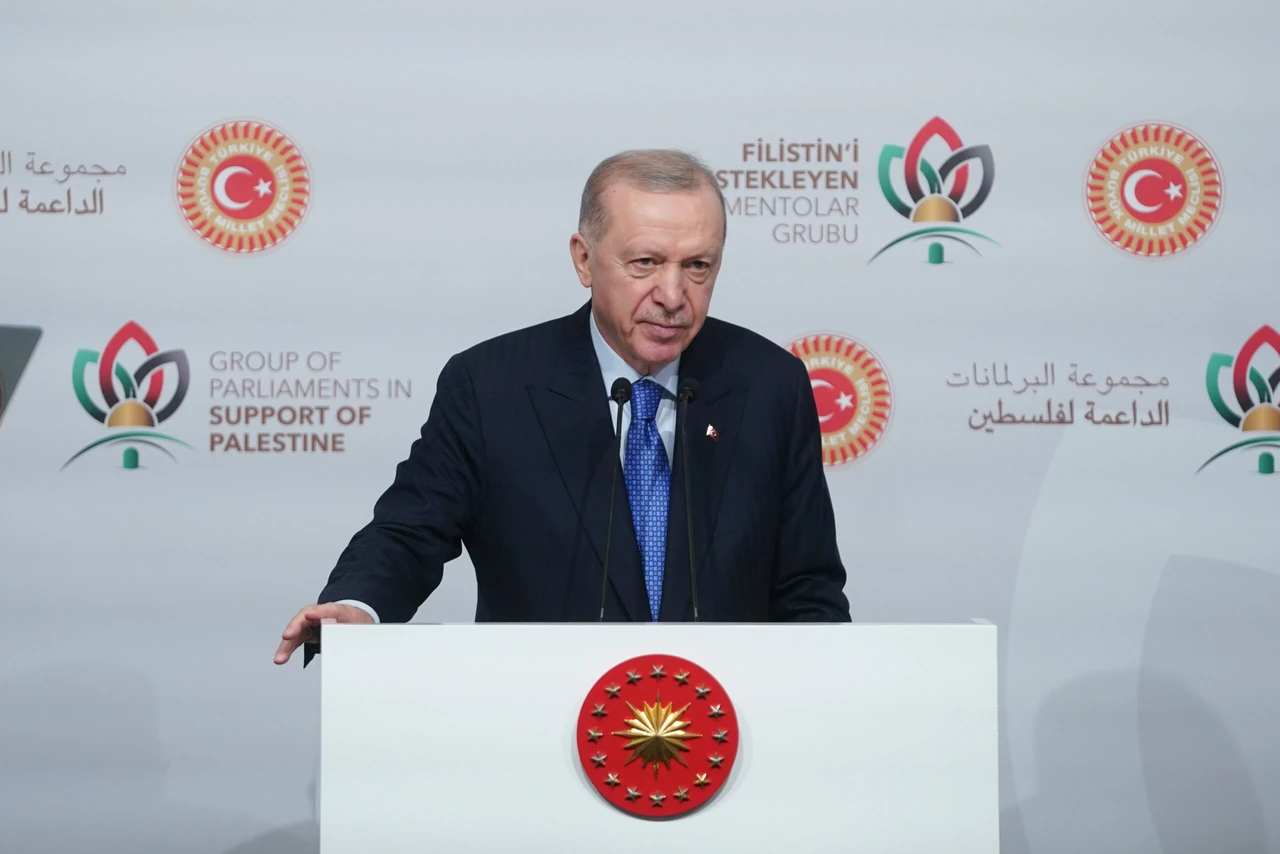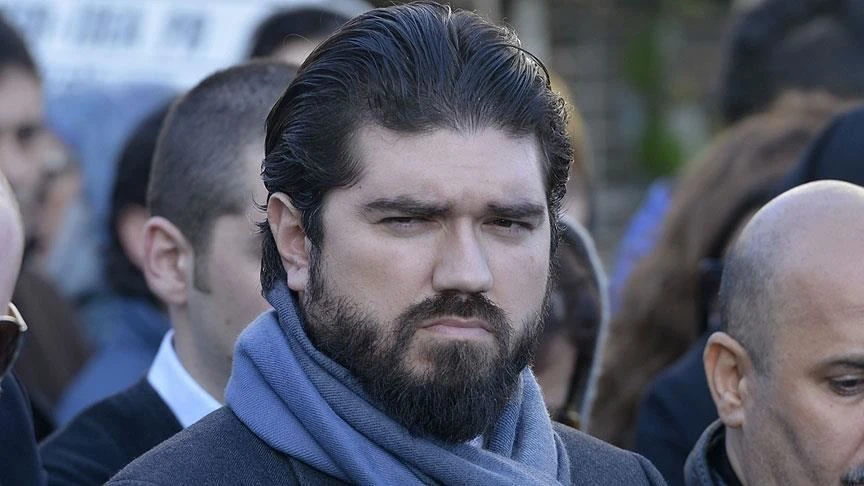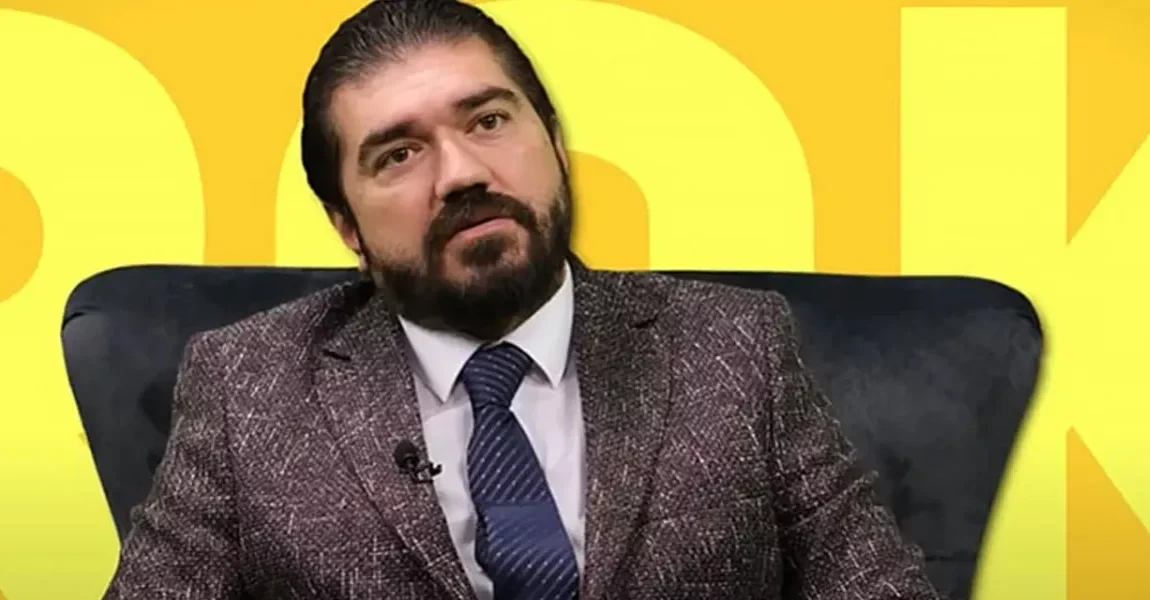Can Mitsotakis, Erdogan resolve Turkish-Greek issues?
International relations expert Dr. Filis provides an in-depth analysis of the Mitsotakis-Erdogan meeting, discussing the challenges and potential outcomes in resolving Greek-Turkish disputes
Exclusive interview by Selin Hacialioglu — Greek Prime Minister Kyriakos Mitsotakis’ recent visit to Türkiye on May 13 marks a significant advancement in ongoing efforts to normalize relations between Greece and Türkiye.
This meeting follows the initial steps taken during President Recep Tayyip Erdogan’s visit to Athens in December 2023.
Both leaders have shown a commitment to maintaining a cooperative stance and freezing crises, focusing on enhancing collaboration in various sectors such as trade, economy, tourism, transportation and energy.
President Erdogan’s interview with the Greek newspaper Kathimerini ahead of Mitsotakis’ visit highlighted the mutual desire to resolve issues and strengthen friendship between the two nations.
This intention is grounded in the Athens Declaration on Friendly Relations and Good-Neighbourliness which both countries signed during Erdogan’s visit. The declaration documents the dedication to resolving disputes according to international law and exploring cooperation opportunities.
Given the historical context and the strategic importance of Greek-Turkish relations, Dr. Constantinos Filis, an expert in International Relations, provided some valuable insights.
Dr. Filis, is an expert in International Relations. He holds a B.A. in Political Science and History from the University of La Verne, an M.A. in Global Governance from the University of Reading, and a Ph.D. in Russian Foreign Policy from the same institution.
Dr. Filis has held academic positions at Oxford University and is currently a board member of several influential organizations, including the Greek-Turkish Forum and the Delphi Economic Forum. He also serves as the ACG Institute of Global Affairs Director and is an Associate Professor at the American College of Greece.
He shared his perspectives in an in-depth interview with Türkiye Newspaper to explain the goals and potential outcomes of the Mitsotakis-Erdogan meeting.
Exclusive interview with Greek expert Dr. Constantinos Filis
Q: What are the goals of this meeting?
Dr. Filis: “Both sides’ main goal in this meeting is to maintain the moratorium on actions that could cause tensions. This includes avoiding violations of Greek airspace, field actions that could escalate tensions, and rhetorical outbursts.
The leaders aim to preserve a moratorium that has established a détente in relations, which both countries welcome. Notably, for the past 15 months, since February-March 2023, there have been minimal to no violations of Greek airspace. This is significant for Greece, reducing the need for costly and risky air responses. Pilots on both sides are no longer in danger during these air encounters.
The second part of the moratorium concerns migration. There has been a significant reduction in migration flows, benefiting Greece by reducing the number of arrivals to manage. This shows Türkiye’s respect for the EU-Türkiye statement of March 2016.
The third aspect is tourism. The seven-day express visa has significantly increased the number of Turkish tourists visiting the ten Greek islands included in the program. This social interaction between citizens of both countries is very positive and has been well-received by local Greek communities and Turkish tourists. During the recent Bayram holiday, Turkish tourists flocked to the Greek islands.
These three areas – maintaining the moratorium, migration, and tourism – are key topics to sustaining a positive atmosphere.
Tourism also falls under the positive agenda of bilateral cooperation.”
The matter of Western Thrace: ‘Neither side will back down’
Q: Even though Mitsotakis said he doesn’t want to discuss this, do you think there will be a discussion about minority communities in Western Thrace regarding educational and religious issues?
Dr. Filis: “Türkiye consistently raises this issue. I believe President Erdogan will bring it up again. Türkiye’s response is well-known, and I don’t think we’ll see dramatic changes on either side.
Türkiye will continue to talk about the Turkish minority whose rights are allegedly not respected, and Greece will respond that there is no Turkish minority, only a Muslim minority whose rights are respected. Neither side is likely to deviate from their established positions.”
‘The disagreements about maritime zones are well-known and numerous’
Q: My next question concerns maritime zones and security. The issue of maritime zones’ delineation remains contentious and is not immediately addressed in the talks. How crucial is this?
Dr. Filis: “Both sides have decided not to delve into the more difficult issues at this time. They understand that their differences are significant. While the topic might be mentioned, and there could be preliminary talks about when to start such discussions, it has been set aside for now.
This is because no meaningful discussion can begin without a prior atmosphere of relative trust and calm. It’s not a new conversation, especially when the disagreements are well-known and numerous; they’ve had it many times and know that one side looks east and the other west.”
Dr. Filis believes ‘Reversing President Erdogan’s decision seems highly unlikely’
Q: The third question concerns cultural and historical differences. For instance, the recent conversion of Chora or Kariye Mosque seems to be an issue that Mitsotakis definitely wants to discuss. How do you think such decisions affect Greek-Turkish relations?
Dr. Filis: “I believe that respecting monuments, whether cultural, historical, or religious, is a sign of civilization.
The decision to convert Chora into a mosque is troubling. However, it is not a recent decision – it is a 2019 ruling by Türkiye’s Council of State. On the other hand, its execution just five days before the Greek Prime Minister’s visit sends a negative message and adds unnecessary tension to the discussions.
Türkiye claims this is an internal matter, while Greece argues it is not. Given Chora’s status as a World Heritage site, the conversion required UNESCO’s approval, and changing its status should have involved UNESCO again, leading to a clear disagreement.
Reversing Türkiye’s decision seems highly unlikely. President Erdogan is appealing to a conservative, Islamist, and nationalist base, crucial for his plans for constitutional reform. Without broader political support, the AKP won’t be able to push through these changes.”
Türkiye’s international ‘negotiation power’ improves relations with the West and EU
Q: The next question is more about the European Union and NATO and how you think that now that Türkiye’s relations with the West have changed, especially in recent months, what are the possible implications for regional stability, and how could the European Union and NATO react?
Dr. Filis: “In relation to Greece and Türkiye?”
Q: Yes, concerning Greece and Türkiye, but more generally with decisions taken on Ukraine and Palestine.
Dr. Filis: “There is a different approach to conflicts between Türkiye and NATO and others in the West, mainly on the issue of Gaza. However, many Westerners criticize Netanyahu very harshly for his policy and the humanitarian disaster in Gaza.
Türkiye had a more balanced stance in Ukraine, which is certainly not aligned with the West’s. It is not similar to Greece’s; it is more balanced, looking towards Russia. This affects Türkiye’s relations with the West to some extent. Mainly regarding Türkiye’s reliability as a player whom Westerners can trust to move forward with their relationship, but on the other hand, it also offers Türkiye greater negotiating space.
They say, ‘Since Türkiye talks to Russia, that is useful to me; since Türkiye supports Hamas in Gaza, which is a terrorist organization according to the West, it still plays a role and is useful to me.’ This also happens in Libya and other areas, such as Nagorno-Karabakh, where Türkiye tries to present its policy, even when not aligned with that of the West, as a policy that gives it negotiating power – greater weight than it would have under other conditions.”
Türkiye’s unresolved issues with Greece will impact EU relations
Q: Do you think this stance will also change Türkiye’s relations with the European Union? Or its relationship with Greece?
Dr. Filis: “No, because European Union member states are already preparing to recognize Palestine as a state. Borrell, who is the de facto Foreign Minister of the European Union, attacks Netanyahu every day on X (Twitter) for Israel’s policies. I don’t think the issue of Gaza would affect the European Union’s relationship with Türkiye.”
Q: What do you think about the Greek-Turkish issue? Do you think the improvement of the two countries’ relationship would affect the situation?
Dr. Filis: “There are two aspects here. One is that Greece is one of the few EU member states that genuinely supports the prospect of strengthening Türkiye-EU relations, not necessarily membership, but closer ties. We want a reliable, stable Türkiye that looks towards the West.
On the other hand, many member states desire this relationship with Türkiye directly. They think, “Why go through European channels when we can work directly?”
The second issue is that EU-Türkiye relations are influenced by Türkiye’s relations with Greece and the Cyprus issue. This is something Türkiye does not like. Greece and Cyprus are EU member states, and Türkiye wishes the EU to be impartial in its disputes with them. Therefore, Türkiye’s relations with the EU are influenced by its relations with Greece and Cyprus, and vice versa.”
‘I don’t think anyone wants to mediate between Greece and Türkiye’
Q: Lastly, considering planned future meetings of the leaders in international forums, what are the prospects for substantial progress on long-standing issues? Do you think there could be mediators or international organizations that could help these discussions?
Dr. Filis: “If you mean the United Nations, no, it could not mediate. If you mean an international judicial body like The Hague, The Hague does not mediate. The Hague only hears cases from parties that have agreed on the agenda to be discussed.
If you mean mediation by a third party, I don’t think anyone wants to mediate between Greece and Türkiye at this moment because the differences are too great. Therefore, the two parties must decide whether they want to open discussions on issues with significant differences, both in the issues themselves and the agenda.
For example, Türkiye, as President Erdogan said on Sunday, wants a package deal at the table with all the issues it raises, while Greece prefers a step-by-step approach.”
What did Erdogan and Mitsotakis’ meeting represent?

The recent meeting between Mitsotakis and Erdogan represents a significant step forward in the ongoing efforts to normalize relations between Greece and Türkiye.
The commitment to maintaining a moratorium on actions that could cause tensions, along with a focus on cooperation in areas such as migration and tourism, reflects a mutual desire to build a more stable and collaborative future.
However, longstanding issues, including minority rights, maritime zones, and cultural heritage disputes, remain challenging and require sustained dialogue and trust-building measures.
The evolving dynamics within the EU and NATO also play a crucial role in shaping the broader context of Greek-Turkish relations. Diplomatic engagement and constructive dialogue seem to be the most important tools the two nations have for resolving their decades-long issues.



